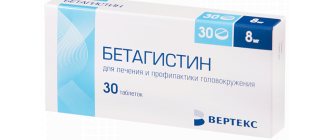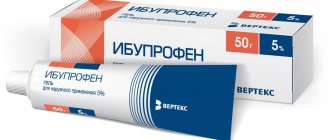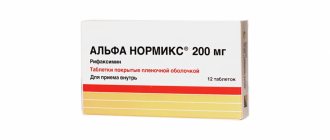Pharmacological properties of the drug Alpha D3-teva
Alpha D3-Teva is a pro-D hormone (a highly effective active metabolite of vitamin D3) that regulates the metabolism of calcium and phosphorus. Alphacalcidol (1-alpha-hydrocholecalciferol) in the liver and bone tissue is very quickly transformed into calcitriol (1,25-dihydrocholecalciferol, D-hormone) in the liver. Calcitriol is the major metabolite of cholecalciferol (vitamin D3) and plays a key role in maintaining calcium and phosphorus homeostasis through intestinal calcium absorption and renal reabsorption. In the body, calcitriol (1,25(OH)2D3) is normally formed as a result of two successive reactions of hydroxylation of cholecalciferol (ergocalciferol) - initially in the liver and bone tissue into calcidol (25(OH)2D3) - a slightly active compound, and then in the kidneys involving 1 alpha-hydroxylase in 1,25(OH)2D3. In osteoporosis, there is a decrease in the activity of 1 alpha-hydroxylase in the kidneys, which leads to a decrease in calcitriol levels and impaired calcium absorption in the intestine. Alpha D3-Teva transforms into 1,25-dihydrocholecalciferol (D-hormone) and increases its level in the blood. This causes an increase in the absorption of calcium and phosphorus in the intestines, an increase in their reabsorption in the kidneys, increased bone mineralization, and a decrease in the level of parathyroid hormone in the blood. In patients with impaired alpha-hydroxylation in the kidneys that occurs with age, taking Alpha D3-Teva promotes sufficient formation of calcitriol, which neutralizes the deficiency of D-hormone. Alpha D3-Teva restores a positive calcium balance, as a result of which the intensity of bone resorption decreases, which helps reduce the incidence of fractures. Increases bone mineral density. With a course of use of the drug, there is a decrease in the severity of bone and muscle pain associated with impaired phosphorus-calcium metabolism, improved coordination of movements and balance support, increased muscle strength, as a result of which the frequency of falls decreases. Pharmacokinetics . After oral administration, Alpha D3-Teva is quickly absorbed into the gastrointestinal tract. The time to reach the maximum concentration of the drug in the blood plasma is 8–18 hours. The onset of action is after 6 hours, the duration of action is up to 48 hours. In the liver and bone tissue, alfacalcidol is quickly transformed into calcitriol (1,25-dihydrocholecalciferol, D-hormone). The rate of transformation of Alpha D3-Teva into D-hormone in the body is regulated by the feedback principle and depends primarily on the initial plasma level of D-hormone, as well as on the plasma levels of Ca and PGT. Unlike natural vitamin D3, the biotransformation of the drug does not occur in the kidneys, which allows its use in patients with renal pathology, as well as in all patients with osteoporosis, accompanied by a decrease in the activity of 1 alpha-hydroxylase.
Alpha D3-Teva® (Alpha D3-Teva®)
Attention should be paid to patients taking cardiac glycosides, since hypercalcemia can lead to the development of arrhythmia in such patients.
Attention should be paid to patients taking thiazide diuretics, as the risk of developing hypercalcemia may be increased in such patients.
The effectiveness of alfacalcidol is generally maintained in patients with reduced liver function. In severe liver failure, the concentration of the active metabolite 1,25-dihydroxyvitamin D may decrease due to a weakening of the hydroxylation process or due to decreased enterohepatic circulation. In this case, it may be necessary to prescribe the drug in higher doses.
When using the drug in older people, no dose adjustment is required.
The drug may contribute to the development of hypercalcemia, so patients should be informed about the clinical symptoms of this condition (see section "Overdose"). While using the drug Alpha D3-Teva®, it is necessary to regularly monitor the concentration of calcium, phosphate, calcium-phosphate compounds, alkaline phosphatase and the level of parathyroid hormone in the blood serum.
Calcium concentration should be determined once a week or month depending on the clinical situation. More frequent calcium measurements are required early in treatment, especially in conditions without significant bone damage, such as hypoparathyroidism, and if plasma calcium is already elevated, and later in treatment if there is evidence of bone regeneration. The risk of developing hypercalcemia is determined by factors such as: the degree of bone demineralization, renal function and the dose of Alpha D3-Teva®. The appearance of hypercalcemia may be due to the fact that the dose of the drug is not reduced in a timely and adequate manner in the presence of biochemical signs of restoration of bone tissue structure (normalization of alkaline phosphatase in the blood). The development of prolonged hypercalcemia, especially in chronic renal failure, should be prevented, focusing on such indicators as the concentration in the blood serum of calcium, alkaline phosphatase, parathyroid hormone, the amount of calcium excreted in the urine, radiological and biochemical data.
If hypercalcemia develops or a persistent increase in the level of calcium phosphate compounds beyond the clinical norm, the drug should be discontinued immediately, at least until these indicators return to normal (usually within one week), then the drug can be resumed at a dose that is half the previous dose.
Patients with severe bone damage (as opposed to patients with renal failure) can tolerate higher doses of the drug without signs of hypercalcemia. The absence of a rapid increase in serum calcium in patients with osteomalacia does not necessarily mean that the dose of the drug should be increased, since calcium can penetrate into demineralized bone due to its increased absorption in the intestine.
Excessive suppression of parathyroid hormone should be avoided. For patients on dialysis, serum parathyroid hormone levels should be in accordance with current treatment guidelines.
To prevent the development of hyperphosphatemia in patients with bone lesions of renal origin, alfacalcidol can be used together with phosphate binders.
For osteoporosis, the use of Alpha D3-Teva® can be combined with estrogens and antiresorptive drugs.
The excipients of the drug include peanut oil. The drug is contraindicated in patients with an allergic reaction to peanut butter and soy.
Indications for use of the drug Alpha D3-teva
- main types and forms of osteoporosis (postmenopausal osteoporosis;
- osteoporosis associated with treatment with corticosteroids, senile);
- osteomalacia as a consequence of insufficient absorption, for example in the case of malabsorption and post-gastroectomy syndrome;
- hypoparathyroidism;
- hypophosphatemic vitamin D-resistant rickets/osteomalacia (as additional therapy);
- osteodystrophy in chronic renal failure;
- with the goal of significantly reducing the incidence of falls among older people.
Use of the drug Alpha D3-teva
Inside. The capsule should be swallowed whole with plenty of water. The dose and duration of therapy is determined by the doctor individually and depends on the nature of the disease and the effectiveness of therapy. In some cases, the drug is used throughout life. Unless otherwise prescribed, the starting dose for adults is 1 mcg of alfacalcidol (4 capsules of 0.25 mcg or 2 capsules of 0.5 mcg or 1 capsule of 1 mcg) daily. For patients with more severe bone disease, higher doses are prescribed: 1–3 mcg alfacalcidol (4–12 capsules of 0.25 mcg or 2–6 capsules of 0.5 mcg or 1–3 capsules of 1 mcg) daily. Children over 6 years of age with body weight ≥20 kg - 1 mcg/day (except in cases of renal osteodystrophy). For patients with hypoparathyroidism, the dose should be reduced once normal blood calcium levels are achieved (22–2.6 mmol/L; 8.8–10.4 mg/100 ml) or when the product of plasma calcium × phosphate concentrations = 3. 5–3.7 (mmol/l). Alpha D3-Teva capsules 0.25 mcg : If the daily dose is 0.5 mcg of alfacalcidol, take 1 capsule morning and evening daily. If the daily dose is 1 mcg of alfacalcidol, take 2 capsules in the morning and evening daily. Alpha D3-Teva capsules 0.5 mcg : If the daily dose is 0.5 mcg, take 1 capsule in the evening daily. If the daily dose is 1-3 mcg of alfacalcidol (2-6 capsules of 0.5 mcg), it should be divided in half and taken one half in the morning and the other in the evening. Alpha D3-Teva capsules 1.0 mcg : If the daily dose is 1 mcg of alfacalcidol, take 1 capsule in the evening daily. If the daily dose is 3 mcg of alfacalcidol, take 1 capsule in the morning and 2 capsules of Alpha D3-Teva in the evening.
Alpha d3-teva® (Alpha d3®-teva)
When using the drug Alpha D3-Teva® in children and in patients with chronic renal failure, it is necessary to regularly monitor the calcium and phosphate levels (at the beginning of treatment - once a week, when Cmax is reached in the blood plasma and during the entire treatment period - every 3 -5 weeks), as well as alkaline phosphatase activity (for chronic renal failure - weekly monitoring) in the blood plasma. In chronic renal failure, preliminary correction of hyperphosphatemia is required.
When normal ALP activity in the blood plasma is achieved, the dose of Alpha D3-Teva® must be reduced, which will avoid the development of hypercalcemia.
At the beginning of treatment with Alpha D3-Teva®, it is recommended to measure calcium levels, especially in conditions without significant bone damage, for example, with hypoparathyroidism and in cases where plasma calcium levels are already elevated, and also at later stages of treatment - if there are signs of recovery bone tissue structure.
The risk of developing hypercalcemia is determined by factors such as the degree of bone demineralization, renal function, and drug dose.
Hypercalcemia or hypercalciuria is corrected by reducing the dose of Alpha D3-Teva® and reducing calcium intake until its content in the blood plasma is normalized. Typically this period is 1 week. After normalization, therapy is continued using half of the last dose used.
If hypercalcemia develops or a persistent increase in the content of calcium phosphate compounds beyond the clinical norm, the drug should be immediately discontinued, at least until these indicators return to normal (usually within a week), then use of the drug can be resumed at a dose , which is half the previous one.
Patients with severe bone damage (as opposed to patients with renal failure) can tolerate higher doses of the drug without signs of hypercalcemia. The absence of a rapid increase in calcium levels in the blood plasma in patients with osteomalacia does not always mean that the dose of the drug should be increased, because calcium can penetrate into demineralized bone due to its increased absorption in the intestine.
The development of long-term hypercalcemia should be prevented, especially in chronic renal failure, focusing on indicators such as calcium content in blood serum and urine, alkaline phosphatase activity, parathyroid hormone concentration, radiological and histological data.
To prevent the development of hyperphosphatemia in patients with bone lesions of renal origin, alfacalcidol can be used together with phosphate binders.
It must be taken into account that sensitivity to vitamin D varies from patient to patient, and sometimes the use of even therapeutic doses may be accompanied by symptoms of hypervitaminosis.
Children who receive vitamin D for a long time are at increased risk of stunted growth.
To prevent hypovitaminosis D, a balanced diet is most preferable. In old age, the need for vitamin D may increase due to a decrease in the absorption of vitamin D, a decrease in the skin's ability to synthesize provitamin D3, a decrease in sun exposure, and an increase in the incidence of renal failure.
The excipients of the drug include peanut oil. The drug is contraindicated in patients with an allergic reaction to peanut oil and soybean oil.
Impact on the ability to drive vehicles and operate machinery
Caution should be exercised when driving vehicles and mechanisms that require increased concentration and speed of psychomotor reactions, since dizziness and drowsiness may develop when using the drug Alpha D3-Teva®.
Side effects of the drug Alpha D3-teva
If the dose of alfacalcidol is not adjusted, there may be an increase in calcium levels in the blood, which disappears when the dose is reduced or the drug is temporarily stopped. Signs of a possible increase in calcium levels in the blood are fatigue, gastrointestinal disorders (vomiting, heartburn, abdominal pain, nausea, epigastric discomfort, constipation, diarrhea), anorexia, dry mouth, moderate muscle pain, bone pain, joints. During therapy with alfacalcidol, the following adverse reactions are possible: rarely (1/10,000 and ≤1/1000) - a slight increase in the level of phosphates in the blood, in order to prevent which the patient can be prescribed phosphate absorption inhibitors (such as aluminum compounds); tachycardia; weakness, headache, dizziness, drowsiness; very rarely (≤1/10,000) , including isolated cases - heterotopic calcification (cornea and blood vessels), disappearing after discontinuation of the drug; a slight increase in HDL in the blood plasma. In patients with severe renal impairment, hyperphosphatemia may develop; allergic skin reactions (itching) and anaphylactic shock, the latter can be caused by peanut oil, which is part of the drug.
In children and patients with chronic renal failure (CRF), it is necessary to regularly monitor the content of calcium and phosphate in the blood plasma (at the beginning of treatment - once a week, when Cmax is reached, and throughout the entire treatment period - every 3-5 weeks), as well as alkaline phosphatase activity (for chronic renal failure - weekly monitoring).
In case of chronic renal failure, preliminary correction of hyperphosphatemia is required. When the activity of alkaline phosphatase in the blood plasma is normalized, the dose of Alpha D3-Teva® must be reduced, which will avoid the development of hypercalcemia. At the beginning of treatment with Alpha D3-Teva®, it is recommended to measure calcium levels, especially in conditions without significant bone damage, for example, with hypoparathyroidism and in cases where calcium levels in the blood plasma are already elevated, as well as at later stages of treatment - if there are signs of structural restoration bone tissue. The risk of developing hypercalcemia is determined by factors such as the degree of bone demineralization, renal function, and drug dose.
Hypercalcemia or hypercalciuria is corrected by reducing the dose of Alpha D3-Teva® and reducing calcium intake until the calcium level in the blood plasma is normalized. Typically this period is 1 week. After normalization, therapy is continued using half of the last dose used. If hypercalcemia develops or a persistent increase in the content of calcium phosphate compounds beyond the clinical norm, the drug should be immediately discontinued, at least until these indicators return to normal (usually within a week), then the drug can be resumed at a dose , which is half the previous one.
Patients with severe bone damage (as opposed to patients with renal failure) can tolerate higher doses of the drug without signs of hypercalcemia. The absence of a rapid increase in serum calcium in patients with osteomalacia does not always mean that the dose of the drug should be increased, since calcium can penetrate into demineralized bone due to its increased absorption in the intestine. The development of prolonged hypercalcemia, especially in chronic renal failure, should be prevented, focusing on indicators such as calcium levels in the blood serum and urine, alkaline phosphatase activity, parathyroid hormone concentration, radiological and histological data.
To prevent the development of hyperphosphatemia in patients with bone lesions of renal origin, alfacalcidol can be used together with phosphate binders. It must be taken into account that sensitivity to vitamin D varies from patient to patient, and sometimes taking even therapeutic doses can cause symptoms of hypervitaminosis.
Children who receive vitamin D for a long time are at increased risk of stunted growth.
To prevent hypovitaminosis D, a balanced diet is most preferable. In old age, the need for vitamin D may increase due to a decrease in the absorption of vitamin D, a decrease in the skin's ability to synthesize provitamin D3, a decrease in sun exposure, and an increase in the incidence of renal failure.
The excipients of the drug include peanut oil. The drug is contraindicated in patients with an allergic reaction to peanut butter and soy.
Special instructions for the use of Alpha D3-teva
The drug should be prescribed with caution to patients predisposed to hypercalcemia, especially those with urolithiasis. During the period of use of the drug, it is necessary to regularly (at least once every 3 months) monitor the level of calcium in the blood plasma and urine, monitor the development of the therapeutic effect and, if necessary, adjust the dose of alfacalcidol to avoid the development of hypercalcemia and hypercalciuria. If there are biochemical signs of normalization of bone structure (normalization of alkaline phosphatase in the blood plasma), an appropriate reduction in the dose of Alpha D3-Teva is necessary, which helps to avoid the development of hypercalcemia. Hypercalcemia or hypercalciuria can be eliminated by discontinuing the drug and reducing calcium intake until its plasma concentration normalizes. As a rule, this period is 1 week. Therapy can then be extended, starting with half the last dose used. During pregnancy and breastfeeding . Although no negative effects on the fetus or infant have been proven, the drug should not be used during pregnancy and lactation. Due to the possible risk of developing persistent hypercalcemia, which can cause delayed physical and mental development, supravalvular aortic stenosis, retinopathy in infants, overdose of a vitamin D analogue during pregnancy should be avoided. The use of Alpha D3-Teva during breastfeeding may increase the level of calcitriol in breast milk. Considering this, the drug is not used during breastfeeding. The ability to influence reaction speed when driving vehicles or working with machinery . The effect of the drug on the ability to drive vehicles and operate complex mechanisms has not been identified, but the possibility of adverse reactions such as drowsiness and dizziness should be taken into account. Children. Used in children over 6 years of age with body weight ≥20 kg.
ALPHA D3-TEVA
special instructions
In children and patients with chronic renal failure (CRF), it is necessary to regularly monitor the content of calcium and phosphate in the blood plasma (at the beginning of treatment - once a week, when Cmax is reached, and throughout the entire treatment period - every 3-5 weeks), as well as alkaline phosphatase activity (for chronic renal failure - weekly monitoring).
In case of chronic renal failure, preliminary correction of hyperphosphatemia is required. When the activity of alkaline phosphatase in the blood plasma is normalized, the dose of Alpha D3-Teva® must be reduced, which will avoid the development of hypercalcemia. At the beginning of treatment with Alpha D3-Teva®, it is recommended to measure calcium levels, especially in conditions without significant bone damage, for example, with hypoparathyroidism and in cases where calcium levels in the blood plasma are already elevated, as well as at later stages of treatment - if there are signs of structural restoration bone tissue. The risk of developing hypercalcemia is determined by factors such as the degree of bone demineralization, renal function, and drug dose.
Hypercalcemia or hypercalciuria is corrected by reducing the dose of Alpha D3-Teva® and reducing calcium intake until the calcium level in the blood plasma is normalized. Typically this period is 1 week. After normalization, therapy is continued using half of the last dose used. If hypercalcemia develops or a persistent increase in the content of calcium phosphate compounds beyond the clinical norm, the drug should be immediately discontinued, at least until these indicators return to normal (usually within a week), then the drug can be resumed at a dose , which is half the previous one.
Patients with severe bone damage (as opposed to patients with renal failure) can tolerate higher doses of the drug without signs of hypercalcemia. The absence of a rapid increase in serum calcium in patients with osteomalacia does not always mean that the dose of the drug should be increased, since calcium can penetrate into demineralized bone due to its increased absorption in the intestine. The development of prolonged hypercalcemia, especially in chronic renal failure, should be prevented, focusing on indicators such as calcium levels in the blood serum and urine, alkaline phosphatase activity, parathyroid hormone concentration, radiological and histological data.
To prevent the development of hyperphosphatemia in patients with bone lesions of renal origin, alfacalcidol can be used together with phosphate binders. It must be taken into account that sensitivity to vitamin D varies from patient to patient, and sometimes taking even therapeutic doses can cause symptoms of hypervitaminosis.
Children who receive vitamin D for a long time are at increased risk of stunted growth.
To prevent hypovitaminosis D, a balanced diet is most preferable. In old age, the need for vitamin D may increase due to a decrease in the absorption of vitamin D, a decrease in the skin's ability to synthesize provitamin D3, a decrease in sun exposure, and an increase in the incidence of renal failure.
The excipients of the drug include peanut oil. The drug is contraindicated in patients with an allergic reaction to peanut butter and soy.
Interactions of the drug Alpha D3-teva
In the treatment of osteoporosis, Alpha D3-Teva can be prescribed in combination with antiresorptive drugs of different groups and estrogens. The effect of alfacalcidol is enhanced by the simultaneous use of estrogens in pre- and postmenopausal women. Vitamin D and its derivatives should not be used concomitantly with Alpha D3-Teva due to the possibility of additive interactions and an increased risk of hypercalcemia. With the simultaneous use of Alpha D3-Teva with digitalis preparations, the risk of developing arrhythmia increases. When used simultaneously with barbiturates, anticonvulsants and other drugs that activate microsomal oxidation enzymes in the liver, it is necessary to take Alpha D3-Teva in a higher dose. GCS may also reduce the effect of alfacalcidol. The absorption of alfacalcidol is reduced when used with cholestyramine, colestipol, sucralfate, and antacids with a high aluminum content. Alpha D3-Teva and aluminum-based antacids cannot be used simultaneously; the interval between doses should be at least 2 hours. When used simultaneously with Alpha D3-Teva, magnesium-based antacids increase the risk of developing hypermagnesemia. With the simultaneous use of calcium supplements and thiazide diuretics, the risk of developing hypercalcemia increases.
Overdose of the drug Alpha D3-teva, symptoms and treatment
With a single overdose (25–30 mcg) of alfacalcidol, no harm to health is observed. Subsequent cases of alfacalcidol overdose may cause hypercalcemia. Symptoms : weakness, lethargy, dizziness, headache, nausea, dry mouth, constipation, diarrhea, heartburn, vomiting, abdominal pain, bone pain, itching, tachycardia. Polyuria, polydipsia, nocturia, proteinuria may occur if renal function is impaired. Treatment : stop taking the drug. Depending on the severity of hypercalcemia, you can adhere to a calcium-free or low-calcium diet, take fluids, perform dialysis, use loop diuretics, corticosteroids and calcitonin. In case of acute overdose, a positive effect is possible with gastric lavage and/or the use of mineral oil (which helps reduce absorption and increase excretion of the drug in feces). There are no specific antidotes for alfacalcidol.




